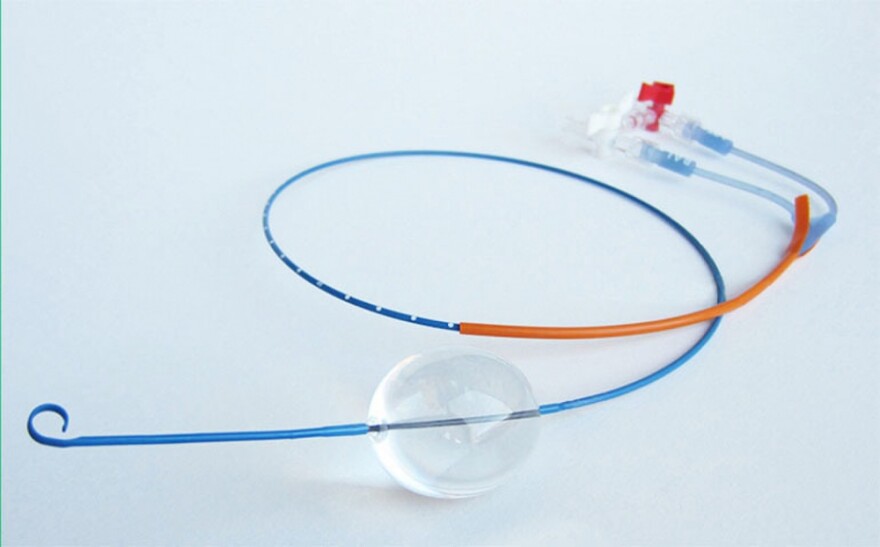A small balloon could be one of the best bets for Columbus doctors to save gunshot victims. And as Columbus continues to experience a wave of deadly shootings, Grant Medical Center has already found plenty of opportunities to put it to use.
Trauma surgeon Dr. Chance Spalding says the technique, which is used to control bleeding in trauma patients, is known as REBOA: resuscitative endovascular balloon occlusion of the aorta.
“It’ s a minimally invasive technique that we can go in the groin, much like people get a heart stent, and we can sneak this little catheter into the main blood vessel that exits the heart and we can blow up a balloon that now stops the bleeding," Spalding says.
A program using the balloon-like device started at Grant in January 2017. So far, doctors there have used the procedure 18 times for trauma patients.
“Specifically, it’s for gunshots to the belly or pelvis region or any trauma that happens from car crashes to the pelvis or belly," Spalding says. "If it’s a chest trauma or a chest gunshot wound, then those patients typically need surgery and we go in and fix that and not use this balloon.”

Reboa was first used in England by the Royal London Hospital. And Riverside Hospital is also using the technique.
Dr. Spalding says the procedure can be effective for injuries below the heart.
“I feel that it gives us an opportunity to do different procedures for trauma patients that we’ve never been able to do in the past," Spalding says. "I feel that it gives them an opportunity for quicker recovery from their traumatic injuries."

Spalding adds that the long-term results of using Reboa will require 5 to 10 more years of study.





